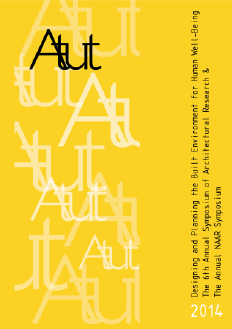Materiality, Movement and Meaning: Architecture and the Embodied Mind.
Abstract
To be human – and therefore to be embodied – is to be already extended into the world, into what Maurice Merleau-Ponty in his last writings called the ‘flesh’ of the world: a liminal realm where it is impossible to say categorically what belongs to the self and what belongs to the environment. This talk develops a new theoretical framework for understanding the relationship betweenarchitecture and embodiment – initially, by questioning the now commonplace view of the body’s prosthetic relationship with technology. Drawing on the work of contemporary thinkers such as Bernard Stiegler, Raymond Tallis, and Tim Ingold, it argues that rather than treating new technological extensions of the body as in some way threatening to our sense of self, we should instead see them in a more positive way as part of a longer developmental trajectory in which ‘the human’ and ‘the technological’ are in fact mutually co-constitutive. By considering these issues within the framework of recent advances in evolutionary, cognitive and neuroscientific theory, the paper tries to draw out some of the more significant implications of both human and technological embodiment for designing, making and thinking about architecture today.
Downloads
Published
2014-10-23
How to Cite
Hale, J. (2014). Materiality, Movement and Meaning: Architecture and the Embodied Mind. Proceedings of the Annual Architectural Research Symposium in Finland, 3. Retrieved from https://journal.fi/atut/article/view/48114
Issue
Section
Keynote Lectures
License
Authors retain copyright and grant the journal right of first publication with the work simultaneously licensed under a Creative Commons Attribution License that allows others to share the work with an acknowledgement of the work's authorship and initial publication in this journal.





